May 23 is
Lucky Penny Day – “See a penny, pick it up… All day long you’ll have good luck.”
Superstitions related to Lucky Penny
World Turtle Day
National Taffy Day
 South Carolina Admission Day 1788 as the eighth state
South Carolina Admission Day 1788 as the eighth state
- Capital: Columbia
- Nickname: Palmetto State
- Bird: Carolina Wren
- Flower: Yellow Jessamine
- Tree: Palmetto
- Motto: Prepared in mind and resources/While I breathe, I hope
See our page on South Carolina for more interesting facts and trivia about South Carolina.
May 23, 1568 – The Netherlands declared independence from Spain.
1701 – After being convicted of piracy and of the murder of gunner, William Moore, Captain William Kidd was hanged in London, England.
1829 – Accordion patent granted to Cyrill Demian in Vienna, Austrian Empire. Demian’s instrument bore little resemblance to modern instruments. It only had a left hand buttonboard, with the right hand simply operating the bellows.
1873 – The Canadian Parliament established the North-West Mounted Police, the forerunner of the Royal Canadian Mounted Police.
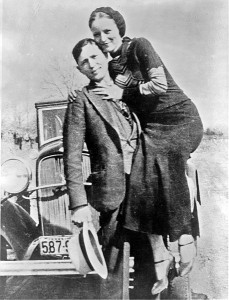 1934 – The American bank robbers Bonnie Parker and Clyde Barrow were ambushed by police and killed in Black Lake, Louisiana.
1934 – The American bank robbers Bonnie Parker and Clyde Barrow were ambushed by police and killed in Black Lake, Louisiana.
1945 – World War II: Heinrich Himmler, the head of the Schutzstaffel, (Nazi SS) committed suicide while in Allied custody. On Hitler’s behalf, Himmler formed the Einsatzgruppen and built extermination camps. As facilitator and overseer of the concentration camps, Himmler directed the killing of some six million Jews, between 200,000 and 500,000 Romani people, and other victims; the total number of civilians killed by the regime is estimated at eleven to fourteen million people. Most of them were Polish and Soviet citizens.
May 23, 1949 – The Federal Republic of Germany was founded. Commonly called West Germany, it reunited with East Germany in 1990.

 Birthday of Mary Cassatt (May 22, 1844), American artist noted for her pictures of mothers and children. Examples of her work can be viewed at
Birthday of Mary Cassatt (May 22, 1844), American artist noted for her pictures of mothers and children. Examples of her work can be viewed at  May 22, 1980 – The Pac-man game is released.
May 22, 1980 – The Pac-man game is released.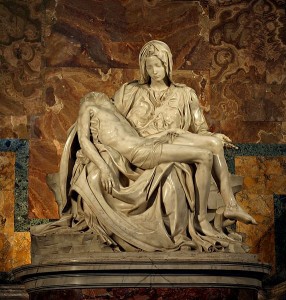 1972 – Michelangelo’s Pietà in St. Peter’s Basilica in Rome was damaged by a vandal, the mentally disturbed Hungarian geologist, Laszlo Toth. The work has been restored and now lives in St. Peter’s behind bullet-proof acrylic glass.
1972 – Michelangelo’s Pietà in St. Peter’s Basilica in Rome was damaged by a vandal, the mentally disturbed Hungarian geologist, Laszlo Toth. The work has been restored and now lives in St. Peter’s behind bullet-proof acrylic glass. Birthday of Dolley Madison in 1768. Dolley Todd Madison was the wife of
Birthday of Dolley Madison in 1768. Dolley Todd Madison was the wife of  The first Norman Rockwell Saturday Evening Post cover was published May 20, 1916. Entitled Boy with Baby Carriage, it shows 2 boys in baseball uniforms scoffing at another boy dressed in his Sunday suit pushing a baby carriage. One of Norman Rockwell’s favorite models, Billy Paine, posed for all three boys. For this painting, Rockwell received $75.00.
The first Norman Rockwell Saturday Evening Post cover was published May 20, 1916. Entitled Boy with Baby Carriage, it shows 2 boys in baseball uniforms scoffing at another boy dressed in his Sunday suit pushing a baby carriage. One of Norman Rockwell’s favorite models, Billy Paine, posed for all three boys. For this painting, Rockwell received $75.00.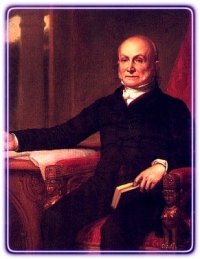 1828 –
1828 –  1941 – New Nazi battleship Bismarck left Gdynia, Poland.
1941 – New Nazi battleship Bismarck left Gdynia, Poland. 1830 – Edwin Budding of England signed an agreement for manufacture of his invention, the lawn mower.
1830 – Edwin Budding of England signed an agreement for manufacture of his invention, the lawn mower. May 18, 1980 – Mount Saint Helens erupted in Washington State, killing 57 people, and changing the surrounding landscape completely.
May 18, 1980 – Mount Saint Helens erupted in Washington State, killing 57 people, and changing the surrounding landscape completely.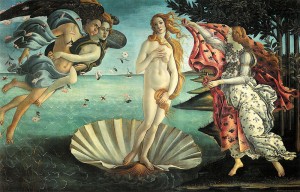 May 17, 1510, death of Sandro Botticelli (Alessandro di Mariano di Vanni Filipepi), Italian painter of the Early Renaissance.
May 17, 1510, death of Sandro Botticelli (Alessandro di Mariano di Vanni Filipepi), Italian painter of the Early Renaissance.  On May 17, 1943, the United States Army contracts with the University of Pennsylvania’s Moore School to develop the ENIAC.
On May 17, 1943, the United States Army contracts with the University of Pennsylvania’s Moore School to develop the ENIAC. 1970 – Thor Heyerdahl crossed Atlantic on reed raft Ra.
1970 – Thor Heyerdahl crossed Atlantic on reed raft Ra. Jean Joseph Etienne Lenoir built first automobile in 1862. He was a Belgian engineer who developed the internal combustion engine in 1858.
Jean Joseph Etienne Lenoir built first automobile in 1862. He was a Belgian engineer who developed the internal combustion engine in 1858.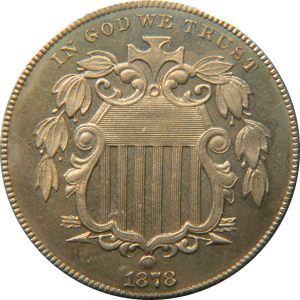 In 1866, Congress authorized the nickel 5 cent piece to replace the silver half-dime.
In 1866, Congress authorized the nickel 5 cent piece to replace the silver half-dime.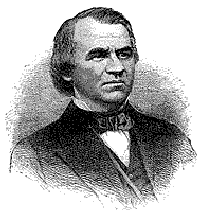 By one vote, Senate fails to impeach
By one vote, Senate fails to impeach 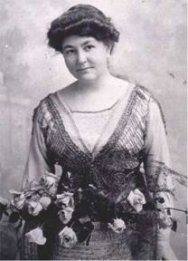 Birthday of Ellen Axson Wilson ( (May 15, 1860), wife of
Birthday of Ellen Axson Wilson ( (May 15, 1860), wife of 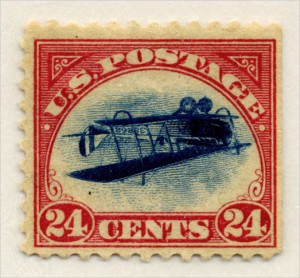 1918 – First airmail postal service inaugurated with service from New York to Philadelphia and to Washington, D.C. The first U.S. airmail stamp cost 24 cents. Domestic airmail became obsolete in 1975 and international air-mail in 1995.
1918 – First airmail postal service inaugurated with service from New York to Philadelphia and to Washington, D.C. The first U.S. airmail stamp cost 24 cents. Domestic airmail became obsolete in 1975 and international air-mail in 1995. 1973 –Nolan Ryan pitches his first no-hitter. He had seven in his active career.
1973 –Nolan Ryan pitches his first no-hitter. He had seven in his active career.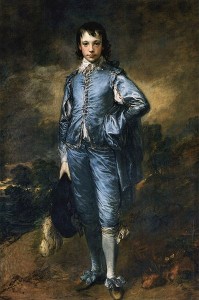
 In 1862 Adolphe Nicole of Switzerland patents
In 1862 Adolphe Nicole of Switzerland patents  Last Chevrolet Corvair built in 1969.
Last Chevrolet Corvair built in 1969. On May 14, 2005, the USS America (CV-66), a decommissioned supercarrier of the United States Navy, (commissioned in 1965) is deliberately sunk in the Atlantic Ocean after four weeks of live-fire exercises. She is the largest ship ever to be disposed of as a target in a military exercise. She was the last supercarrier not named after a person.
On May 14, 2005, the USS America (CV-66), a decommissioned supercarrier of the United States Navy, (commissioned in 1965) is deliberately sunk in the Atlantic Ocean after four weeks of live-fire exercises. She is the largest ship ever to be disposed of as a target in a military exercise. She was the last supercarrier not named after a person.